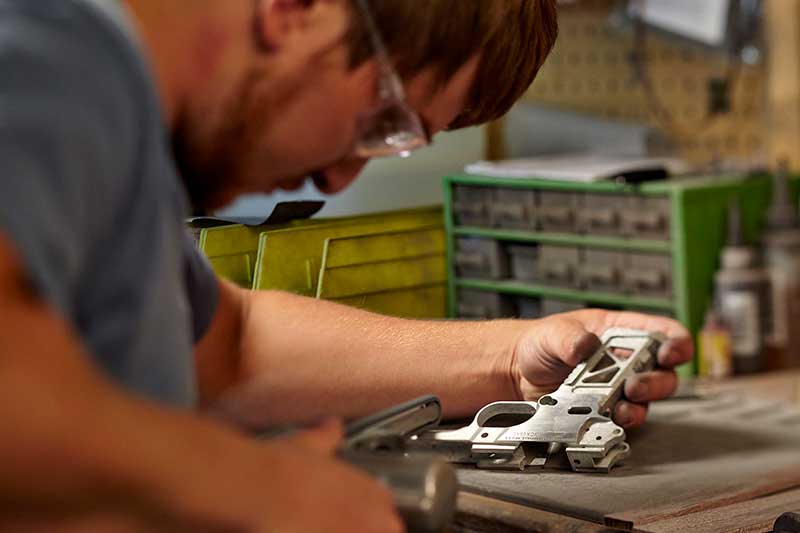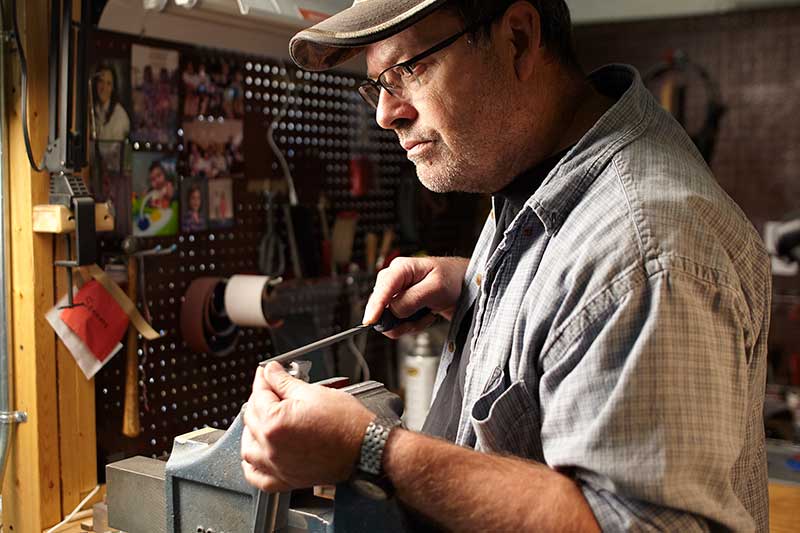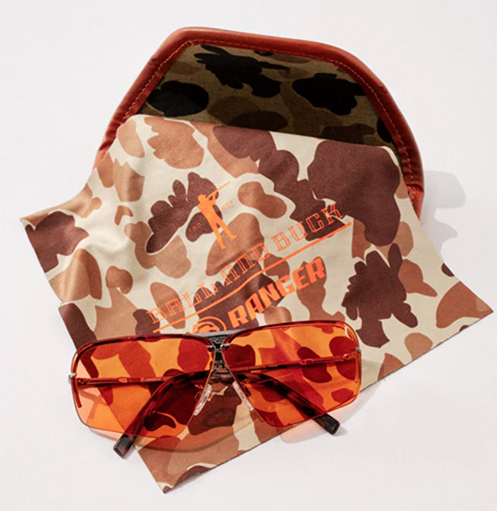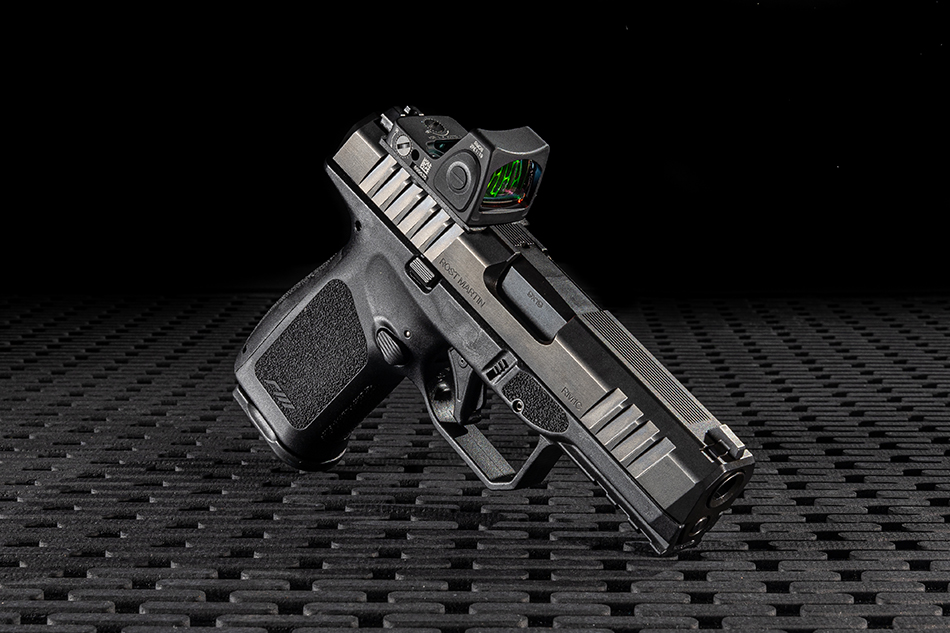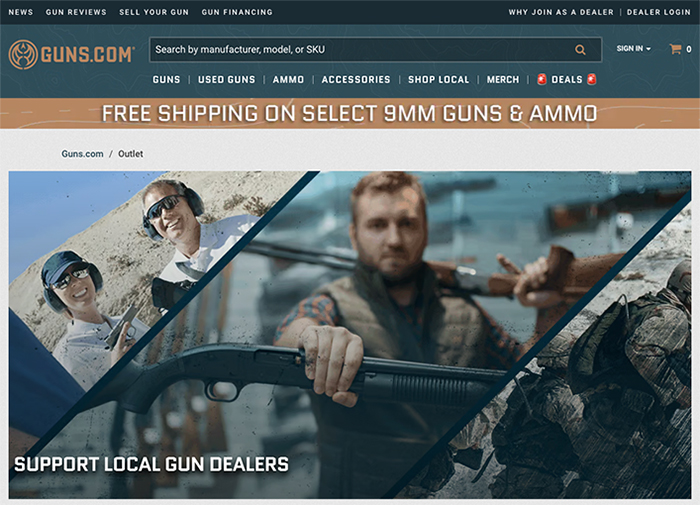The In-House Gunsmith:
Worth The Effort?
Where would we be without gunsmiths? Think of a world without auto mechanics. Automakers would churn out new cars, with no one there to fix them when they break. Certainly, some of us could handle minor repairs and maintenance. But what happens when things get serious?
With that in mind, we’re taking a look at the state of gunsmithing. But rather than just taking the industry’s pulse, we’ll explore ways gun stores can incorporate gunsmiths into their business plans.
For insights, we’ve turned to three very different sources: Bill Wilson, owner of Wilson Combat; Don Keller, an Arkansas-based gunsmith; and Gene Kelly, founder and president of the American Gunsmithing Institute (AGI).
Given their unique backgrounds and current positions, it’s not surprising each of them has a different take on where things stand today for the men and women who keep our firearms running smoothly.
Impact Of Price-Sensitivity, Modern Manufacturing
Wilson has built a small empire, fueled by the customization of high-end 1911s, rifles and shotguns. More recently, Wilson’s custom shop has even moved into GLOCKs and SIG SAUER P320s. Looking at what he’s accomplished, it’s easy to argue there’s a strong consumer appetite for quality gunsmithing.
Yet Wilson sees darker clouds on the horizon for ’smiths — particularly those without a custom specialty and reputation to go with it.
“The best money is doing custom work on semi-autos or on bolt guns,” Wilson says. “It’s hard to make a living doing general stuff.”
The problem, as he sees it, is gun owners tend to be too price sensitive. They’re always searching for deals and generally balk at paying fair hourly rates for a gunsmith’s labor.
“Gunsmithing really can accelerate your income. Not only does it bring in a customer who might have been going somewhere else or to a big box equivalent. But they have to come in twice. Once to drop off the firearm and once to pick it up.”
Gene Kelly, President American Gunsmithing Institute
“But on the flipside, they’ll walk into an electronics store and pay whatever for something that’s going to be obsolete in a few years,” he contends.
Keller, who has a gunsmith off and on for some 50 years in Arkansas, worries about the future of the industry. Particularly when we’re talking about the true artisans of the field, as opposed to more general armorers.
“There are a lot of people out there in the world who call themselves gunsmiths,” Keller says. “Some of them are really good. Some of them are really bad. And a lot of them are in between.”
Keller got into the business many years ago while competing in black powder matches. He started making accessories —ramrods and shot starters — and the occasional gun to offset his own shooting and travel expenses. Today, he does a lot of general gun maintenance, but also has a strong business restoring old Winchester and Marlin lever actions.
Keller points to modern manufacturing techniques as one of the biggest problems facing gunsmiths today. With many guns, particularly the popular polymer models, molded and pressed parts have replaced machined parts. This has done wonders for reducing production costs — and prices for customers. On the flipside, he argues, this puts those guns at considerable risk from a longevity perspective. And it means less work for gunsmiths.
“Pressed parts are great if you need to make 10,000 of them. But it’s real expensive if you only need two,” he noted. “Any part that was machined, I can reproduce. It might be cost-prohibitive, but I can make the part.”
A Different Take
Kelly has a more optimistic outlook for the industry. He sees considerable demand for the gunsmiths who complete the online education courses offered by the AGI.
“There are millions of firearms sitting in closets not being used,” Kelly stated.
If just even 10% of those need professional cleaning, customization or repair, that’s a lot of potential business. Consider all the guns that get passed down in families, with many of them needing of cleaning, refinishing or maintenance. Further, there are endless opportunities for refinishing, trigger jobs, accurizing and accessories.
“People want custom things these days. We see that with tattoos and custom T-shirts,” he says. “They want things to be uniquely for them. With gunsmithing, that’s one of the better opportunities.”
This also offers the potential for new revenue streams in gun stores around the nation.
Gunsmith In The House
For Kelly, the idea of adding some level of gunsmithing service to a store’s offerings is a no brainer. Considering the relatively small profit margins on gun sales, there’s always a need for extra revenue opportunities — aside from training and accessories sales.
“Gunsmithing really can accelerate your income,” Kelly says. “Not only does it bring in a customer who might have been going somewhere else or to a big box equivalent. But they have to come in twice. Once to drop off the firearm and once to pick it up.”
Having an in-house smith also offers new marketing opportunities. Ahead of hunting season, for example, you can offer a special on gun cleanings. That could lead to sales of slings, scopes and other accessories. And during chaotic times like what we’ve experienced since early 2020, a gunsmith can offer something for customers who might be growing frustrated over gun and ammo shortages.
“Any additional service a retail gun store can offer will be an advantage. Even if you just have somebody who can mount optics or clean guns, that’s a plus.”
Bill Wilson, Owner Wilson Combat
“With gunsmithing, you can scratch their itch to a degree,” he says. “You might not be able to get what they want. But you can put it on order and then work on the guns they already have.”
Wilson agrees, particularly for larger stores and those with ranges.
“Any additional service a retail gun store can offer will be an advantage. Even if you just have somebody who can mount optics or clean guns, that’s a plus,” he says.
But even if you aren’t ready to hire a gunsmith or get training for one of your employees, consider forming a relationship with a local smith to support the industry and your customers.
It could be a formal arrangement, where you take in guns and turn them over to the gunsmith. The store could get a percentage of the profits from each transaction. Or you could simply serve as a matchmaker between customers and the gunsmith.
Keller has long worked with various gun shops around Little Rock, Ark., to drum up business. Prior to the pandemic, he had an arrangement with a local sporting goods store to let him set up a table on weekends. He gets referrals from several stores — through business cards he’s distributed among them.
“It just kind of mushroomed from there,” he shared. “You take anybody with five guns. I guarantee you at least one of them needs some work. But they don’t know where to go to get them fixed.”
There are, of course, potential pitfalls in such relationships. The most important is you need to be certain the gunsmith is good. The last thing you need is to send customers to a bad experience.
“That’s one of the reasons stores might be reluctant to do this,” Keller agrees. “They need to make sure the person is high quality.”
Getting Started
The easiest way to get started with an in-house gunsmith would be to simply hire one. Equipping a basic gunsmithing bench will cost around $3,000, according to Kelly.
Ideally, the smith would have a 10’x10′ work space, though it’s flexible.
“It’s not a huge space issue,” Kelly said. “You can do it on a 6′ bench if that’s all the space you have.”
If you’d rather have an existing employee trained, AGI offers distance learning. The basic level of training starts at 168 hours, while advanced coursework tops out at 400 hours. The initial level can be done in as few as 90 days, though it generally takes six months to a year to complete.
“At a basic level, they could offer cleaning and maintenance,” Kelly says, while stressing the need for a solid understanding of the design, function and repair of various platforms. “Even if you can’t do the repair yourself, you need to understand what needs to be done so you can send it off to another ’smith.”
And for stores that get into customization and trigger jobs, the best way to advertise the service to customers is through a hands-on display of guns that have been worked on.
“Have some guns that you have already customized in your case that are not for sale,” he says. “Let them feel the triggers. Let them feel the tightness and the smoothness. Demonstration firearms really drive sales.”
One of the most important things to remember, as far as Kelly is concerned, is a gunsmith should never shy away from quoting fair prices for their services. That applies even if someone walks through the door with a gun that’s not worth the cost of the repair.
“For all you know, that guy is Warren Buffett and it’s the .22 he used to hunt rabbits with his grandfather. How much money is he willing to pay?” Kelly said. “The number-one problem gunsmiths and dealers have is head trash — about what they can charge and what the market will pay for certain services.”
Of course, few people have a better handle on this than Wilson. Noted earlier, the longtime custom 1911 maker is even delving into GLOCKs these days, proving there’s a market for custom work on guns in the $500 range.
“I keep two guys busy all the time,” Wilson says. “It’s still shocking to me people are willing to spend $2,000–$3,000 on a plastic gun.”
For more info: americangunsmithinginstitute.net, wilsoncombat.com.

